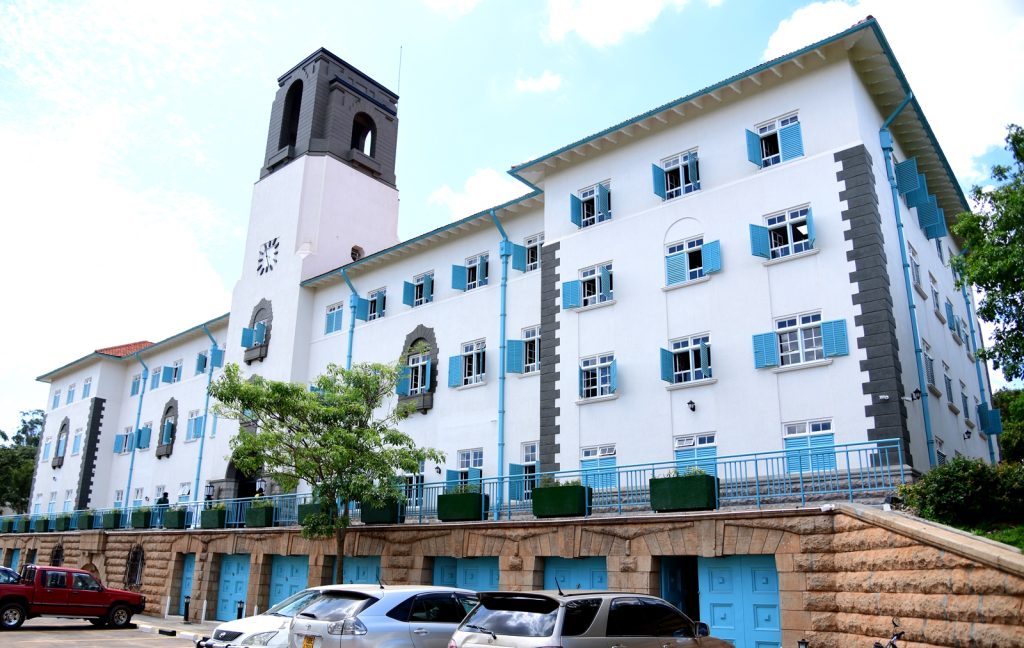Law Teachers Train In The Use Of Clinical Methodologies
Staff of the School of Law Makerere and other University have been re oriented into the Clinical teaching methodologies and called upon to adopt their use in the teaching and learning experiences at their respective Universities
The Commercial law subject teachers of the Bachelor of Laws program drawn from Makerere University, Islamic University in Uganda, King Ceaser University and Uganda Christian University came together to deliberate on the best ways possible to utilize the methodologies that have been proven to be very effective in knowledge transfer globally.

The training held at Esella Hotel 21st to 22nd February 2020 was convened by the Commercial Law Department, under the Transactional Law Clinic, an initiative supported by the Research Initiative of Makerere University.
The Principal Investigator, Dr. PhionaMpanga, who is also the head of the Commercial Law Department said the training was organized to interest the participants into exploring the use of clinical methods in the teaching and learning of commercial law subjects in the LLB program.
She explained that the Transactional Law Clinic that was established in 2019 as a pilot initiative was aimed at enhancing the appropriateness and relevance of legal education and practice in addressing the legal needs of the indigent persons, low income earners, and not for profit business ventures. She said through the clinic activities, students were involved in the communities to enable them appreciate the importance of community service as well as offer commercial or transactional legal services to the people in need.

The Ag. Principal School of Law Dr. Christopher Mbazira commended the management of Makerere University for the effort that made it possible for the commercial Law Department to access funding for the initiative. He expressed happiness that the School was making yet another stride in its effort towardsmainstreaming clinical teaching methodologies more so in the commercial subjects, which was one of the aspirations of the School of Law. He observed that the initial effort to mainstream these teaching methods were resisted citing the need for a lot of preparations by a number of teachers.
While talking about the genesis of the effort to introduce clinical methodologies in the School of Law, Dr. Mbazira said the idea started way back in 2011 and was implemented through the Public interest law clinic, a year after. He said the idea of a Transactional Law Clinic in the School of Law was introduced by a former PILAC student, Ms. Edlyn Eve Murungi, an idea she picked while undertaking her Masters degree in Law at Harvard University.
Dr. Mbazira said the use of clinical teaching methodologies was a global movement and that every two years parties meet and hold discussions on how best the methodologies were applied in the teaching of Law even so because Lawyers go to class and teach as long as they pass well while the educationists undergo some pedagogical training. He described the clinical methodologies as a form of pedagogy that could either be used a stand-alone or get mainstreamed into other courses. He said the methods have been proven to be very effective and that although there were resource gaps, all law students needed to benefit from the skills and hands on experiential learning exhibited.

In a presentation by Ms. Eva Edlyn Muringi about Transactional Law Clinics, it was explained that clinics came from the medical to the legal professions. She illustrated the types of transactional law clinics that included community economic development clinics, community lawyering, poverty law, social enterprises and entrepreneurships, Intellectual property, Nonprofit organizations, international transactional mattersallaimed at helping vulnerable communities access justice.
Ms. Murungi who is also an Instructor in the Transactional Law Clinic said the School of Law was targeting community groups that included small business groups, small not for profitorganizations, socialenterprises, business incubation hubs, low income earners, technovations, women minority owned business among others.
She said law students with support of advocates undertake legal research and presentations based on the identified needs of the communities with the main objective of preventing litigation, as well as reducing transactional costs.
The activities they engage in include community visits, community empowerment workshops, law firm visits, peer to peer learning sessions, knowledge sessions as well as reflection sessions and journals.
At the end of the training which made use of a number of clinical methods for knowledge transfer, the lawteachers appreciated the fact that the methodologies could be actually applied in all programs. They however decried the high number of students in the classes, the limited human and other logistical resources that were likely to hamper the full mainstreaming of the clinical methodologies.



